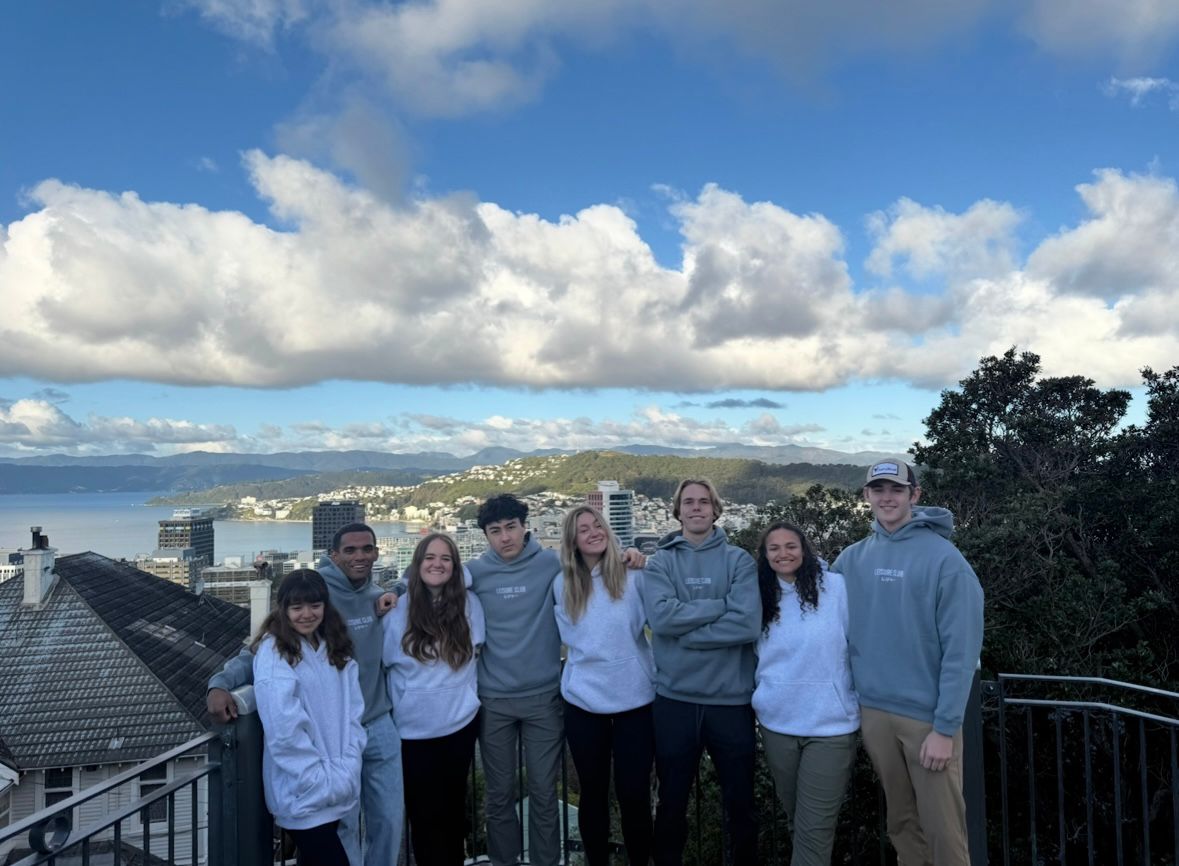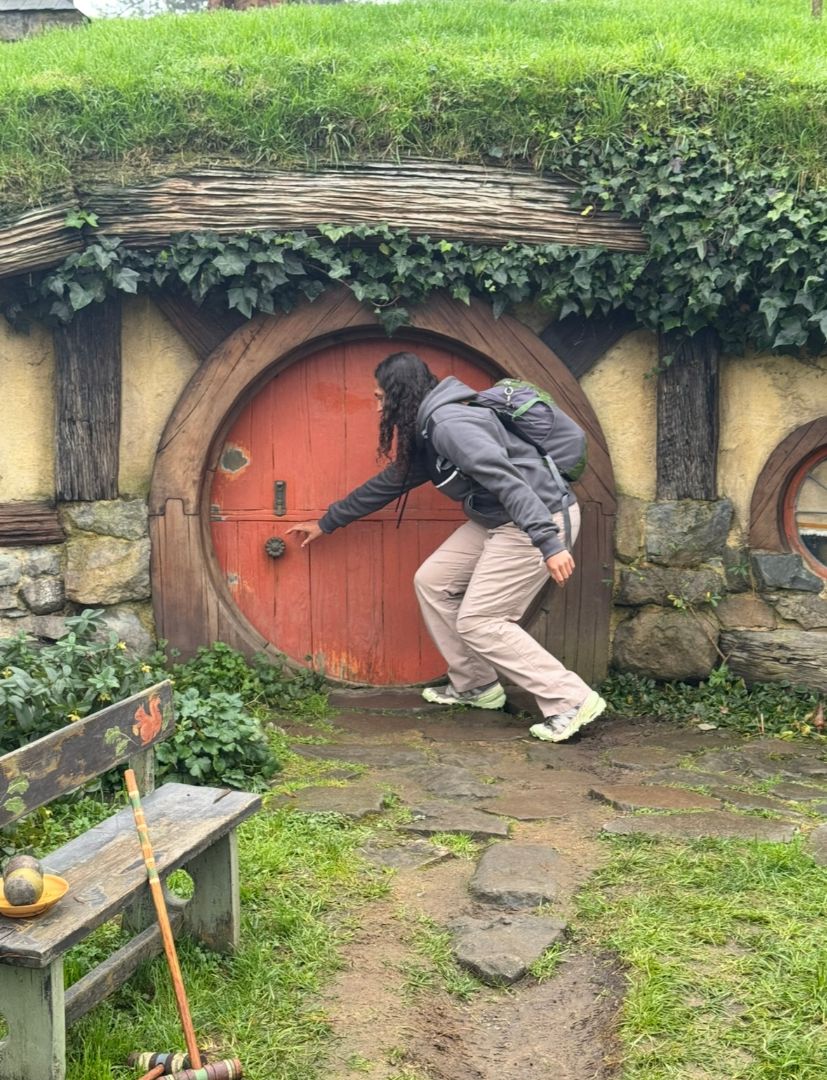Traveling to New Zealan
It 
Academically, this program showed me how the concept of island studies applies far beyond geography. It shaped the way I think about biodiversity, conservation, and cultural values. Learning about the Māori people and how their worldview influences environmental practices gave me a new respect for the connections between culture and ecology. I was also surprised by how divided people are about New Zealand being known for The Lord of the Rings. Some see it as a way to draw tourism, while others worry it overshadows the true ecological and cultural richness of the country. Visiting Hobbiton, I noticed how constructed it felt and learned how much land had to be cleared for it, which raised questions about the gap between appearance and environmental responsibility.
It was also fascinating to hear local opinions about Peter Jackson, the director of The Lord of the Rings movies, and his interest in bringing back the Moa. Many people feel that resources should go toward saving the species that are already disappearing instead of reviving one extinct bird just to keep in a zoo. Others think it would simply be exciting to see a Moa again. As a group, we took every opportunity we could to ask locals what they thought, and it sparked some of the most memorable conversations of the program.
On a personal level, this program gave me confidence and community. I began my freshman year already knowing around twenty incredible people. We bonded over trying new things, hiking, and learning together in a way that a classroom could never capture. I was nervous about the academic side of the program, but the balance between lectures, exploring, and group activities made learning natural and exciting.
As a first-generation, biracial student from a low-income, single-parent household, I am extremely grateful for the scholarships that made this experience possible. Without that support, I would not have been able to see conservation and culture in action on the other side of the world. This program gave me a new perspective on conservation and reminded me that my goal of becoming a wildlife veterinarian is both worthwhile and achievable.